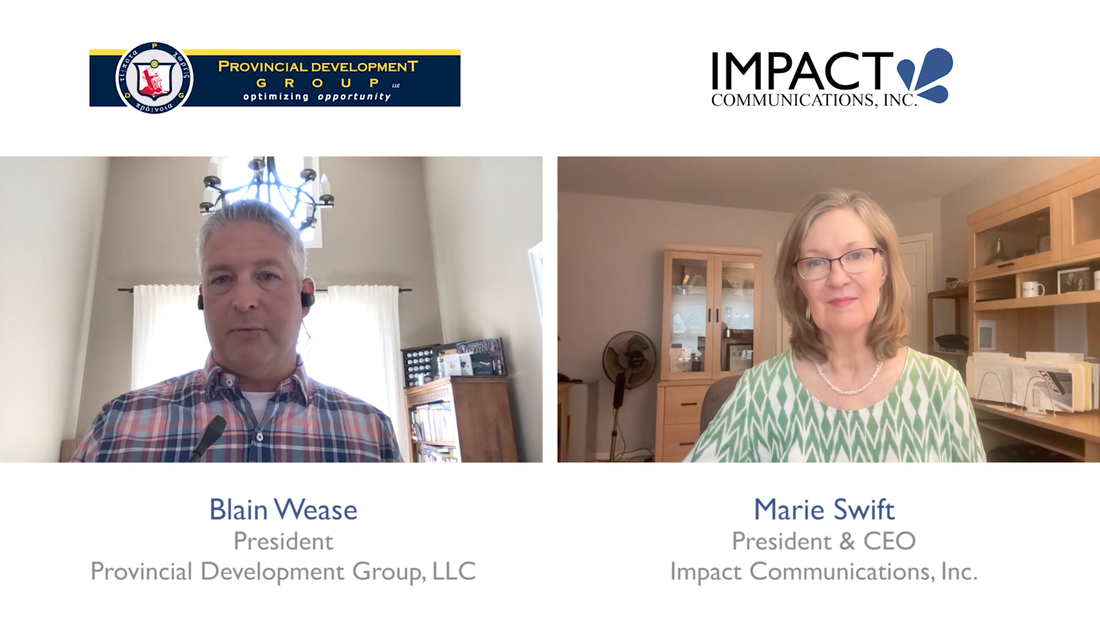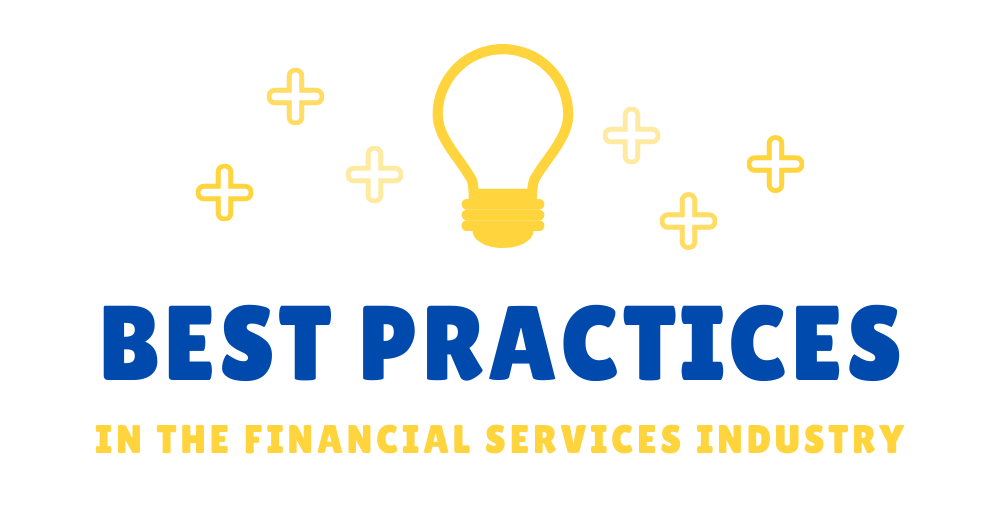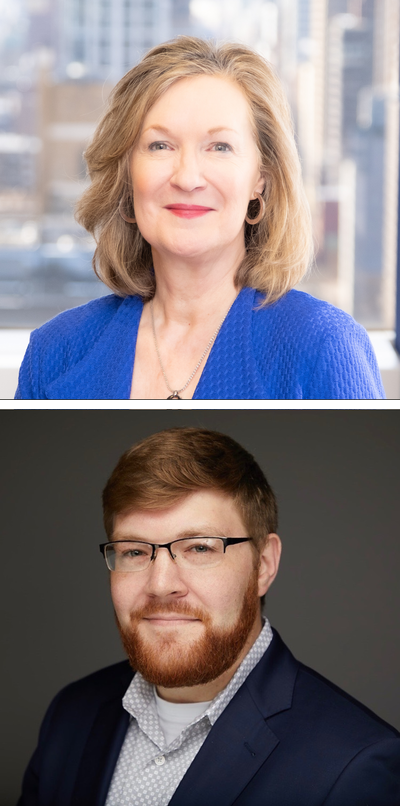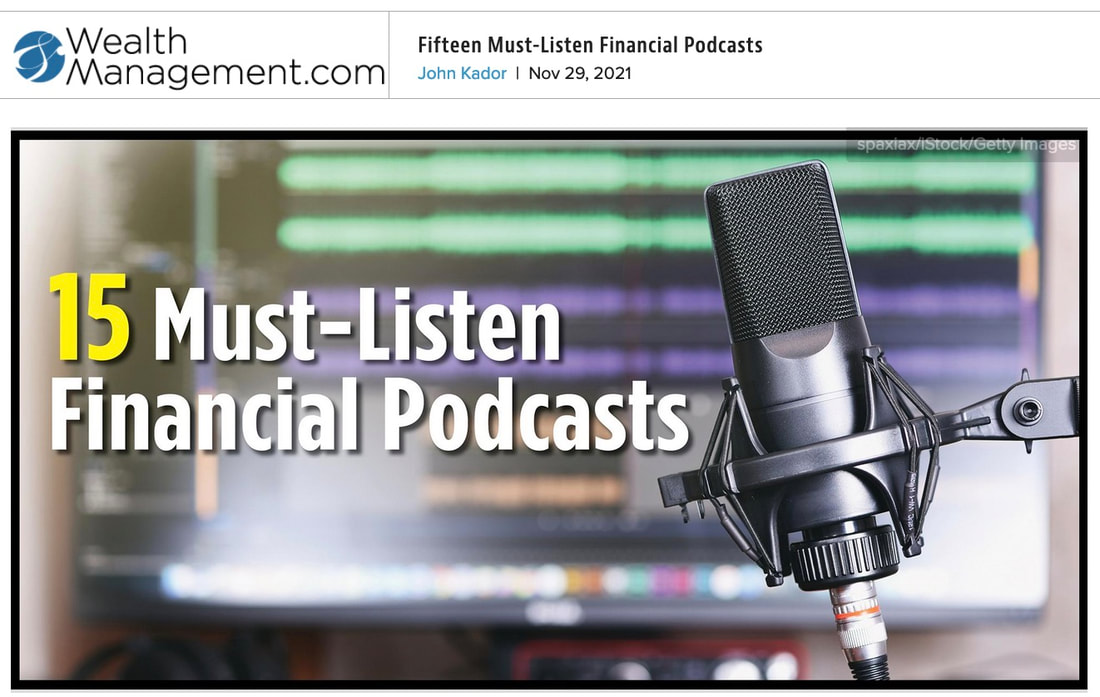|
In this Swift Chat, Marie Swift of Impact Communications, Inc. speaks with Blain Wease, President of Provincial Development Group, LLC, about what makes Provincial different in their approach to helping wealth management firms implement solutions. Working with RIAs and Broker/Dealers, Blain shares how Provincial's comprehensive system improves the health of the firm. They discuss leadership, key metrics and insights on meeting goals by optimizing opportunity.
To learn more about Blain and Provincial Development Group please visit: www.ProvincialDevelopment.com
The biggest challenge that firms have is they are frustrated with the symptoms, but the symptoms have never actually uncovered the root cause. They say things like, 'Well, we went to this seminar and did this' or 'we read this book and we tried this' and then the team will say, 'I wish Bob would quit going to seminars because he comes back every six months and wants to change things, but we're never actually fixing the real problem.' Transcript of Conversation
Marie Swift: All right. Welcome back everybody. We are joined today by Blain Wease of Provincial Development and Provincial, if I'm getting this right Blain, helps management firms equip their leaders more effectively build, scale and realize sustainable growth. Talk us through that. What does that mean and tell us a little bit about what you do and your back story.
Blain Wease: Well before I get to that, thank you for the opportunity to chat. I always enjoy our conversations and really value the strength that you bring to the industry and the wealth of information that you pass along. I wanted to let you know that to start. Provincial Development Group works exclusively with wealth management firms. What I think's really distinctive about our approach Marie, is that we're a non-consulting-based approach. Consulting is largely advice based; we are implementation based. We wanted to differentiate our approach because we found that very often advice wasn't enough to move the needle on the systemic problems that the wealth management firms were having. We switched our model to a manner that really addressed and provided them the resources, personnel tools, templates and advice coupled together. Where we're working through projects in conjunction or collaboration with our clients. So when we're done with them, they actually have a fully operationalized solution, rather than just a lot of touch points to see if they've been continuing to fail on the same thing they failed for the last 10 years. Swift: I'm thinking about some of the firms that I work with, and we also pride ourselves in providing advice, but also the resources and the actual manpower to get things done, so I love the implementation-based approach as well as the, you call it non consulting-based approach or something like that. I think you need both. Could you give us a couple of examples about how you work with firms? I guess it's RIAs primarily, or is it all kinds of financial advisors? Wease: There are two streams that we focus on, Marie. One is RIAs, as you mentioned, and the second is the broker/dealer channel. In terms of our approach, we start with a discovery and our discovery is very healthcare centric, in that if you go in for a physical, you go through a litany of tests and at the end of the day, the medical professional wants to know where you're healthy, where you're not healthy. They don't spend a lot of time on the areas that you're healthy because those aren't concerns. We do the same thing. The reason that that's so important to us is from an integrity standpoint, we don't ever want our clients’ investing dollars in areas that they're already strong. We want to focus their investment in the areas where they really need our help, and most people don't realize the true nature of their problems. Which is part of the reason they've struggled so much to solve them. We want to quantify any recommendation before we ever get to recommending they do something about it. So that we know from our perspective, what we really think's going on, and that there's integrity behind our recommendation. Swift: Can you give us a little bit more about how an engagement would work? Would it be a project? Would it be a retainer? What size of a firm? What types of firms? What types of problems? HOW AN ENGAGEMENT MIGHT WORK Wease: Sure. Well, there's a lot there so if my memory's not as good as yours, I know you'll prompt me. Our typical footprint for firms is an AUM bandwidth between a hundred million in assets, up to 5 billion. So whatever size team is collated to (them), that's who we work with. Our discovery is a project-based phase that is typically 8 to 12 weeks. That's when we do the deep dive where we look at over 44 components of the health of the business from their team, financial records, how they serve clients, how they segment, to how they train people. It's very, very comprehensive. That's why it takes so much time. We have bifurcated our discovery from our engagement for a couple reasons. One is the most important component before we get into an engagement with the client for us is the true, real-world appetite for change. It makes no sense to have an assumption of change without being willing to put the work in that change really requires, it gives us a chance to really gauge the capacity and commitment to change because change is hard. The second thing is do we have the relational capital to help this firm make the difficult steps in days ahead. That's only going to come through a connection of high trust, high relatability, good communication, et cetera. Our engagement phase lasts on average between 9 and 20 months, but that is solely based on what we found in the discovery, and of how much help they need and what type of help they actually need. Did I get everything there? Swift: I think so, but I have a couple of follow-up questions. I'm thinking about the journey, right? If you're on a journey this long, do you go on site for some of this discovery and implementation? Wease: Yes. We average a trip a month on site, and that's really our most powerful time because so much happens in the hallway or on the golf course, or at lunch with a client that you can never replicate virtually. We have a very close working relationship that combines onsite on a pretty meaningful scale, virtual, and then exchange of electronic information, shared files, et cetera. Our relationships are very holistic because the nature of our relationship is really broad and really deep in terms of how we engage clients. Swift: Do they already know the problem or did they just kind of have this sense? Like something's not right, we could be doing better. FIXING THE REAL PROBLEM Wease: I love that question because it gets to the heart of why we exist. The biggest challenge that firms have is they are frustrated with the symptoms, but the symptoms have never actually uncovered the root cause. They say things like, 'Well, we went to this seminar and did this' or 'we read this book and we tried this.' And the the team will say, 'I wish Bob would quit going to seminars because he comes back every six months and wants to change things, but we're never actually fixing the real problem.' Maybe the most meaningful aspect of our discovery outside of an independent third-party evaluation is the ability to really get to the root cause of something instead of just identifying the symptoms. That's a game changer when it comes to our ability to help people. The biggest reason people don't make progress is they haven't actually identified what the systemic root here that's creating and recreating this problem over and over again. Swift: Are there logical points in the growth or the life cycle of a business where they would start to feel like we should take a health check? When would those touch points be? Wease: Well, first of all, I'll say this: Wealth management is very unique in the sense that there's very few other industries where the originating advisor never sets out to build a company. I have talked to thousands and thousands of advisors and only one has ever said my intention was to build a company, be the CEO, hire people and build this corporate infrastructure. A company infrastructure becomes a necessary burden to the development of taking care of clients well and retaining clients. The vast majority of advisors have no leadership experience, have very little entrepreneurial experience. All they've ever known about is getting clients, keeping clients, investing and financial planning, et cetera. One of the things we start with is the recognition that the skill set that's needed to be a great advisor and the skill set that's needed to be a great business leader are very different, a lot of advisors don't have the inherent skill set, experience, or ability to be great leaders on their own. That's why our implementation focus, and the comprehensive nature of our work is such a great resource to them because it really frees them up in as many ways as possible to do what they love without constricting them like they have traditionally been trying to solve problems in area that they'd really rather not be involved. Swift: Could it be that you would come in and you would be assessing, should we bring in a COO? Is it time to bring in a president so that the advisors can focus on leadership or maybe just on serving their clients well? Wease: Precisely. One of the most important additions, whether it's an internal promotion, whether it's reworking a position that's already there, or hiring someone is what we would call the COO Firm Administrator, whatever title that you want. The reason that we have found that to be so critical is if we don't have a point person, who's there to quarterback internally to help us jointly implement, then almost always the advisor is the worst person for that role. We have to help gently educate them sometimes, not so gently as to why that is. If we can't get an internal operations person, who's got authority and ability to help us execute, then we're really hamstrung in our ability to be effective. It's a very keen insight for you to bring that up. Swift: I know I was working with a firm in the Southern California area and the two founders were advisors who loved to be advisors, but their business had been so successful that they couldn't really grow until they brought in a chief operating officer, and then the business really took off. They were able to do some M&A, they were able to get a larger national footprint. I think they're now about $15 billion under management. Wease: That's impressive. One other thing that I'll say, and you and I have talked about this in the past is: When we don't understand something, or we don't have experience, human nature is to grossly oversimplify what it takes to do it well. One of the areas that we see, and it would be interesting to get your feedback. If we turn the tables here, a lot of times that advisors with limited business experience look to a marketing firm, one like yours as this silver bullet, where if we just bring Marie and her team in, we know they're good. Maybe we can solve all of these problems and they'll just make our life easier. They put a completely unrealistic set of expectations on you, as a way to band-aid what they think are the symptoms of (the problem) they are dealing with. One of the reasons that we work so well on the front end, if we can set the firm up for success, then a marketing firm or another firm with specialization like yours can be infinitely more successful because the systemic problems have been fixed. We have recalibrated the expectation and we've got the right people in place. Now when you do your job well, and you create growth, the growth becomes much more of an asset than a liability because there's things in place to actually have that work well. Swift: Yeah, for sure. I'm thinking about some of the teams that my firm has worked with over the years, wealth management teams, where there's just not consensus, it's hard to get consensus, so every decision is a slow, painful process. At some point I think, well, this is healthy. At another point, I think this is never going be healthy and we really need to get to the cause. What's the root of all of this. WHAT'S THE ROOT CAUSE? Wease: That is very true. One of the comical observations, I say, comical tongue in cheek, is Integrated Financial Planning is tremendously popular in the industry and we're big fans of it. We believe in it, but the irony is this: most leaders run their wealth management firms in a completely disintegrated manner. They are going to their clients and talking about why connecting the puzzle pieces makes sense and telling them, we need to look at this holistically and we can't just do this on an island we need to consider all of the ramifications. Then they go back to the office and lead their team in a totally disconnected manner where they are addressing marketing on an island and HR on an island and client services on an island, recognizing for the exact same reasons, they would never tell their clients to do that. Are all of the reasons that running your business in a disintegrated manner creates chaos. Swift: I'm going to just ask you for some quick advice. It occurred to me that you could be helpful for a firm that I'm working with. I'll just say, they are in the middle of nowhere USA, so that they don't recognize themselves. They have six people in the firm, three advisors, all of whom are partners and three support staff. The entire company needs to weigh in on every single marketing decision from what goes in the news release to what goes in the social media, the verbiage, the graphics, everything is a full company decision. What do you think about that, is good or not good? Wease: I would put that in the same category as train wrecks, for this reason, one of the things that we do is when we start in the discovery, we take our clients through the predictive index. The predictive index it's a different form of disc or anagram or whatever the flavor of the week and that, but what's unique about predictive index is it really looks uniquely at natural giftings and natural areas, to tie into what type of work makes the most sense. Here's the assumption that decision making is premised on everyone having equal experience, equal value, equal eye and equal discernment for marketing messaging, when they don't. You have wonderful strengths that I don't have. I might have a couple strengths that you're not as strong in so there are subjects where I would have no business weighing in on what you should do from a marketing perspective, because you're infinitely more qualified to have a voice. This consensus-based decision making doesn't recognize the reality of people's ability. What it tends to end up with is the lowest common denominator of delivery, because that's the only way to get a consensus and that completely undermines the brilliance of a firm like yours, in my opinion. Swift: Yes, and just think about the drain on the company. If the entire company is in on every one-hour strategy session with the marketing team, which they should be trusting to, make the decisions, and make the recommendations. So that's one of the dysfunctions that I've seen in working with some of our firms. We're thinking about this Blain, I'm actually feeling like you're almost like a business therapist in some ways. I mean, is that off-topic or does that feel kind of close to home? Wease: Well, it's interesting because over the years, we've been called pastors, we've been called therapists, we've been called personal advisors. Our mission is not those things, right. That that's not the purpose of why we are there, but it's interesting because one of our core values is, we factor in the whole person and the season of life that they're in. So, tragically, we've had clients who have lost children due to suicide, who've gone through a divorce, who've lost a parent, you know, any number of tragedies. Our whole personal ethos is we owe our clients the dignity of factoring in what's going on in their life and not ignoring it. I'm not here to assess someone else's approach, but for us, we need to be authentic. It's inauthentic for Provincial Development Group and our team, not to be considerate of everything that's going on in our world if we're working with you. That's a real point of distinction and something that we spend a lot of time cultivating as a team, and that comes directly out of that relational connection that I described in the beginning. SURPRISES WORKING WITH FIRMS Swift: I'm thinking about some of the biggest challenges that you've uncovered or maybe the biggest opportunities. What were some of the surprising things you've learned or seen working with wealth management firms? Wease: It's a fun question. I would say the number one thing, and we may not get past number one because it's so big. A lot of leaders don't take responsibility and are not self-reflective or self-aware enough to have any idea of how disruptive their flaws, character weaknesses, whatever term you want use, have on their team and their operations. They become so preoccupied trying to externally look at where the problem is that they never look in the mirror. The number one factor in the health of a firm bar none, there is not even a close second, is the health and character of the leader. If you can't trust them, if they say one thing, and then go in a different direction, if they're not a clear communicator, if they don't set good expectations. That has such a cascading ripple effect, that it's cancerous in the organization. Our biggest challenge is getting through to the leader in a professionally committed way, to help them see how their blind spots are impacting the company. Swift: How do you get at that? I mean, how do you help them see their blind spots? How do you even know what those. Wease: Well, it starts with our discovery. I think I have an unusual ability to connect those dots in a way that I have really taken for granted for a lot of years, because it just occurred to me. Here's a really good example and I won't name the client and I've got the permission to share this anonymously, but I worked with a leader who hated micromanagement. This leader equated setting clear expectations for his team as micromanagement, so therefore he didn't, he spoke in generalities. What I learned from his team is "we never know what Steve really wants from us because he doesn't really tell us." Then Steve would get frustrated because his team is telling him they don't know what he wants, and he thinks he's been clear. In the discovery, I said to Steve, the most important thing that we're going to uncover today is the fact that you've equated clear instruction with micromanagement. Micromanagement, Steve, is giving someone every single step of the way to meet your expectations, that is distinctly different than setting clear expectations and you've falsely collated the two. He changed that and he said, I've never heard that before in my life, in this particular meeting, which I'll talk more about in a moment. His wife was there. I really like getting the wife or spouse involved, especially of the leadership team. I ask in every discovery if I can interview the spouse of the leader or leaders. They provide, even if they have nothing to do with the business, and that is the case in most instances, I can gain so many insights through asking them the right questions, where most people wouldn't do that. Steve took that advice. His wife helped reinforce it, and his leadership has transformed because he broke free of that false premise. I needed to get him to see, and he did, of why that was so important to the future of the firm and why that was so important to the accomplishment of his goals. Then I had leverage because there's no leverage in me telling you what's important, but there's a lot of leverage in me uncovering what's important to Marie and then identifying things in your life professionally or personally that are impeding your progress towards what you've stated is important. I think that's our secret sauce and I'm going` give that to you for free today. ANY MAGIC BULLETS? Swift: Well, so that was my next question is about secrets. I'm always asked for the magic bullet as you hinted at earlier, there is no magic bullet. It's a lot of hard work and strategy, thinking and execution, but are there any secrets to success in life or in business or what's your personal mantra? How do you succeed? Wease: Well, our tagline is optimizing opportunity. The first step of optimizing opportunity is to genuinely recognize where opportunity is and where it's not. I think that the secret, I don't know if it it's not the secret, but one of the things I would respond with more broadly on your question is this: the wealth management space is one of the most difficult sectors to differentiate yourself if you're an advisor, because everyone's saying the same thing. We've coined this phrase, Marie, and I think it'll resonate with your work. Everyone wants to drink from the sea of sameness, same podcasts, same books, same conferences, as all of their peers. Then they get wildly confused at why they're messaging and thinking is just like everyone else. Our background is coming from working with over 30 sectors, so we ask questions like: What can your wealth management firm learn from the Four Seasons? What can your wealth management firm learn from Starbucks? What can your wealth management learn from the turnaround at Ford Motor Company with Alan Mulally a few years ago? That's going against the grain of the sea of sameness. I think that's one of the most under talked about topics in the industry. Where there's such a struggle for that delineation between how we are different. Swift: I love that. When we do our Message Mapping process, where we actually create a message architecture for the whole firm to adopt and internalize, we oftentimes will use examples outside of the wealth management space. One of my favorites is Lush. Lush Soaps and Cosmetics. I don't know if you've ever been into a Lush store, but they have a message architecture and every associate has been taught the architecture. They know the one thing to say, the three supporting things to say, and then how to personalize that with their own examples and stories, so that it's truly authentic. Sometimes a firm will say, well, why should we be studying Lush Soaps and Cosmetics. We want to talk about investment management, wealth management, and there's a lesson in there. It's about thinking outside our everyday awareness and trying to think beyond the terms that everybody else is using to thinking about, okay, how do we change this language in a way that's more authentic and more unique, right? Because they all say they're unique, but then they say the same things. Wease: Precisely. One of the things that we do on our discovery, which really collates with this is we interview the clients of our clients. We will interview three to five people and every single time we'll ask this question, why did you choose to do business with Marie and her firm? Then we will cross section that answer with asking their advisor: Marie, why do you think the Smith's chose to choose a user advisor? Between 80 and 88% of the time the answers are out of phase. I use that point to illustrate if you don't know why people have chosen to do business with you. How can you possibly align your marketing to the most effective things that are really resonating with people? A lot of that mindset comes out of the sea of sameness. They are pre-programmed to say the things and have the answers that they think the industry expects of them. That's why I so enjoy talking to people like you, because you are refreshingly creative and you aren't boxed in, and that, I think that's another secret. Frankly, surrounding yourself with really high-quality people like yourself because that stream of information and that stream of creativity is far more helpful than what many have communicated or recognized. GOOD TO GREAT Swift: That's really interesting to think about the journey and surrounding yourself with the right people. What was that famous book about? The people on the bus and getting the right people in the seats you'll know that one. Wease: Good to Great. Swift: Yes, that is it. So yeah, last question. One thing I'm not really sure that our listeners understand yet is how you got to this place. What qualifies you to do this work? Wease: Well? I'd rather someone else judge, whether I'm qualified or not on the merit of our work so, I'm not going to address that directly. What's led to this opportunity is back in 2004 I started Provincial Development Group when we were living in Colorado Springs, and I started off not wanting to specialize in an industry. The reason I didn't is I recognized early in my career that the “sea of sameness” wasn't just in this industry, but it was in every industry. I thought if I can work in aeronautics and engineering and in retail and hospitality and all of these industries, I can cross pollinate ideas. What ended up happening is, we had a couple referrals because of the success that occurred there in financial management and wealth management firms. Then we looked up and three years later, 80% of our work with a focus on not specializing in an industry and not ever wanting to do that. Had led to over 80% of our revenue and our opportunities coming in this space. We're very uniquely positioned because I don't come out of the industry. I speak to that as a strength, not a weakness. Two, we've got all of this other experience that very few people have, then three, since 2007, we've been working in this sector. So that's very unusual three chords raveled together. That brings a unique perspective to the marketplace and from the referrals that we get, and the pace of our growth. It seems like the marketplace is really responding favorably to that message and that creative approach, and the fact that we're so implementation focused. Swift: Well, I love it. It's really interesting. I'm sure we could go on, but I'm going to cut us off at 30 minutes because we're coming up on that, and we call these Swift Chats for a reason. If people wanted to learn more about your work, how would they do that? Wease: Well, thank you for asking, www.ProvincialDevelopment.com is our website, it is very robust website, lot of videos, a lot of content, a lot of behind the curtains in terms of our thinking. [email protected] is a general email that's available for anyone who wants to learn more about us. Then we still have a telephone 615-591-3960. We're old fashioned that way. It makes it easy to get to us. We don't want to create barriers for people who want to know more, and we always set up a complimentary session for any advisor who just wants to learn about us. We only want to work with people that we're confident we can help. Swift: I hear you on that. Blain Wease, thank you for being here. Wease: Thanks for having me. It's always a delight to reconnect with you and I appreciate you extending the offer. Swift: You bet. Comments are closed.
|
About
|
|
Stay Connected
|
Phone: 913-649-5009
©2023 Impact Communications, Inc.
|





